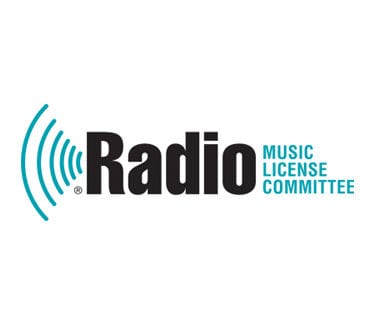By: Administrator

January 8, 2018 Inside Radio:
In colorful and direct language, the Radio Music License Committee is pushing back against an effort to derail its Philadelphia lawsuit against Global Music Rights. RMLC has in effect accused the performance rights organization of lying to Judge Darnell Jones who must decide whether or not to accept a federal magistrate’s recommendation to toss the suit and instead allow a Los Angeles case filed by GMR to move forward.
“GMR has misled this court,” RMLC said in a filing, which accuses the music licensing company of falsely claiming it never refused to allow Pennsylvania radio stations to obtain an interim license agreement allowing them to play music its repertoire. The RMLC said GMR’s own website said as much during the period, citing the pending litigation. “The evidence proving that the Pennsylvania-specific boycott happened from at least May to August 2017 could not be clearer,” the radio industry group tells the court.
The filing comes in response to one made by GMR with the court earlier this month which called such allegations “fiction.” “There was no boycott, and GMR extended the interim licenses, including to Pennsylvania companies,” it said, adding that it was “willing to enter licensing agreements with Pennsylvania stations” as long as the radio industry didn’t try to use those agreements to argue for why the dispute should play out in a Philadelphia courtroom.
To that, the RMLC accuses GMR of “talking out of the other side of its mouth” insisting that was never an issue since last June the radio group repeatedly committed it would use any extensions to argue for jurisdiction. “But that was not good enough for GMR so the boycott endured for over five more weeks until after RMLC was forced to seek relief from this court,” the RMLC told Jones.
It also contends while GMR was in private negotiations with the RMLC, the performance rights organization refused to publicly change the “unconditional boycott” language on its website. “GMR never once publicly stated that it was willing to do business with Pennsylvania stations under any terms, much less under certain specific terms,” the Radio Music License Committee said.
It’s not known whether the arguments made by the RMLC will be enough for Jones to overrule federal Magistrate Judge Lynne Sitarski, who recommended in November that GMR’s antitrust case against RMLC in Los Angeles should instead be allowed to move forward. “There is no basis in fact or law to assert personal jurisdiction over GMR in Pennsylvania and therefore, venue in this judicial district is improper,” Sitarski wrote in her 42-page recommendation to Jones.
GMR has also urged Jones to dismiss the RMLC’s lawsuit outright rather than simply transfer it to California where it would be merged into the pending L.A. case. The RMLC has said doing so would save each side legal expenses but GMR thinks the radio industry should be forced to file a fresh counterclaim in California, arguing a “substantial record” hasn’t been built so far in the Philadelphia court.
But in an effort to keep its Philadelphia case alive, RMLC said last month that Sitarski’s recommendation to close the Philly case was premature since it never had an opportunity to do a legal discovery that it believes would have helped prove why the case against GMR should be heard there. It asked to allow that process to move forward before he makes any final determination as to which case should be advanced.
Antitrust Allegations Still Untouched
For more than a year the RMLC and GMR have faced-off over which jurisdiction should play host to their legal battle. In the meantime that has left the issues at the heart of the case yet to be aired. The RMLC filed an antitrust lawsuit in federal court in Philadelphia in Nov. 2016 alleging GMR violated federal law when it allegedly created an “artificial monopoly” to squeeze higher rates from stations as it demanded radio stations begin paying the performance rights organization for music in its repertoire in Jan. 2017 or pull the songs off the air. Two weeks later GMR replied with an antitrust lawsuit of its own which contended the RMLC is essentially an “illegal cartel.” The California case has been on hold while a final outcome is made in the Philadelphia case.
The delay in reaching any sort of a resolution to the competing lawsuits has meant broadcasters have been required to sign interim deals with GMR to license music in its 75-songwriter repertoire through March 31, 2018. So far two companies—iHeartMedia and Townsquare Media—have voluntarily signed rights agreements with GMR.
http://www.insideradio.com/free/rmlc-to-judge-gmr-s-pennsylvania-boycott-wasn-t-fiction/article_2a32fa4a-f51b-11e7-887f-37cc084ca3fc.html